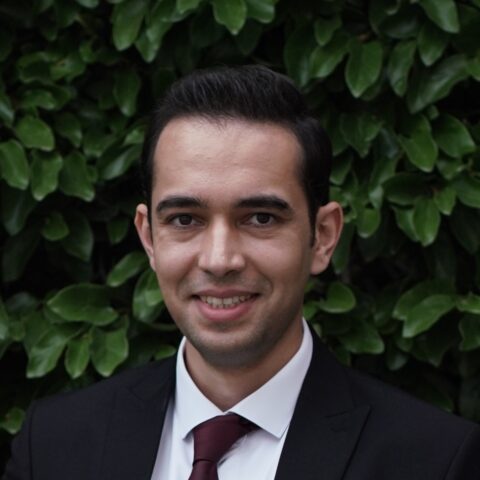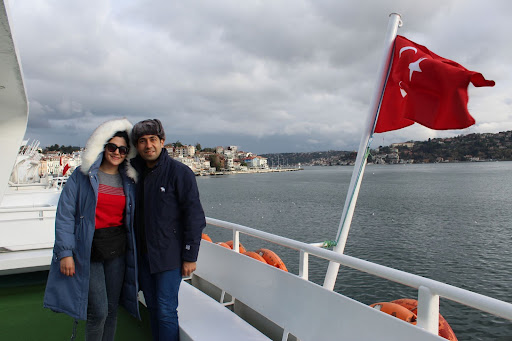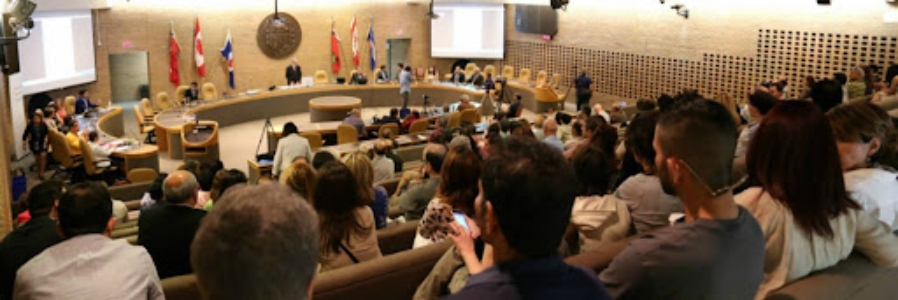Iran is one of Canada’s leading source countries for immigrants and international students, yet Iranians have to travel to neighbouring Turkey or the United Arab Emirates to apply for their visas and study permits first.
That’s because Iran is also one of the few countries that do not have Canadian visa application centres that collect applicants’ biometrics — a requirement introduced in 2013.
A year prior, Canada abruptly closed its embassy in Tehran and severed diplomatic ties with Iran, citing, at least in part, attacks on the British embassy in 2011 to justify the move.
According to Immigration, Refugees and Citizenship Canada (IRCC) data, from Jan. 1, 2018 to Oct. 31, 2021, there were 151,486 biometric enrolments for Iranian residents in visa application centres in Turkey.
In 2012, Canada awarded Global VFS, a private company registered in Dubai, a contract to operate Canada visa application centres in several countries across the globe. According to its website, the company is “the world’s largest visa outsourcing & technology service specialist for governments & their diplomatic missions worldwide.”
This obviously affects Iranians at home, but also the over 200,000 Iranian-Canadians residing mostly throughout Southern Ontario, British Columbia and Quebec, as they have family members back home unable or unwilling to visit due to the added hardships that come with having to travel to Turkey or the United Arab Emirates.
Moslem Noori, the president of the Iranian-Canadian Congress, calls this plainly “discriminatory.”
“Iranians are among the (few) that cannot” access visa centres in their own country, he says.
“But if you look at the number of Iranians and international students who come to Canada, we see that there’s a huge number … So, I feel that that’s discrimination. That’s frustration for Iranian-Canadians.”
In 2019, before the pandemic began, Iran ranked 10th among Canada’s immigrant source countries, with over 6,000 Iranians getting their permanent residence status that same year, CIC News reported.
Also that year, nearly 15,000 Iranian students received a Canadian study permit, making Iran the seventh leading source of Canada’s foreign students.
But getting here isn’t easy.
‘Two worlds’
Arian Soltani is a 29-year-old Iranian international student at the Université de Sherbrooke in Quebec currently studying to get his PhD in computer science. He estimates the round trip to Turkey cost him $800 in travel, hotel and food costs.

Including the fees for the application and the flight to Canada, Arian’s journey cost him nearly $2,000, he told New Canadian Media in a phone interview. For comparison, the average monthly Iranian salary is about $1,750, while the “most typical” one is just over $740 (data based on Iran’s official exchange rate, which values the rial far above the open market rate).
It would also take over 27 months before he heard back from Canada’s immigration department with an approval, just as he “was giving up” on waiting. Unable to secure an apartment due to the uncertainty of his application, he had been staying with friends and family, who had also begun to feel the pressure of two years of hosting.
“That point makes it especially harder, because it’s like living in two worlds,” he says.
“In those two years … everything was exceptionally hard. I couldn’t sign a contract (for a job) because tomorrow my visa might come.”
His wife, Zeynab Haddadi, whom he married 20 months into his wait, remained in Iran and is currently waiting for her visa after making the same trip to Turkey.
Arian says immigration lawyers told him adding her to his initial application could complicate things and extend his wait period, or increase the likelihood of a denial altogether.
With the added stress of the pandemic and being away from his wife, says Arian, anxiety still grips him.
“Sometimes, I can’t breathe,” he says. “It’s really hard.”
No alternative
For others, like Milad Jamal Soltani (unrelated) and his wife, whose visitor visa applications were denied on Sept. 15, 2021 — after just over a year of waiting — the ordeal has an added layer of unfairness to it.
Their trip to Turkey lasted seven days and ran over $2,000 — and that’s without counting costs of certified translations of documents and days of absence from work to get the documents.

Referring to the trip, Milad says he “didn’t like it” but complied as it was “mandatory,” and the only alternative would have been not applying. “It was (also) more difficult and complicated at the time because of the pandemic,” he writes.
“International travel needs lots of planning and it is costly,” he writes. “Besides, travelling in the midst of the pandemic when there was no or very limited flight times as well as closed or minimum services of the VAC office was a big challenge.”
He says he thinks Iranian society at large feels “unhappy and believes it is an unjust decision.”
‘Unnecessary risk’
Noori says the diaspora also finds this to be an “additional, unnecessary risk,” which puts families with parents back in Iran at a disadvantage, as it is financially and physically harder for seniors to make that trip to Turkey.
In October 2018, a petition with 1,820 signatures asked the government to open visa application centres in Iran “as a matter of utmost importance.”
The government’s two-page answer came in December of that year and mentioned “Iranian clients” only once. It largely focused on the importance of biometrics in the visa application process and mentioned ways travellers can enrol their biometric information.
It also said that to “support increased demand, additional biometric collection kits” were being added to existing centres “in neighbouring countries” and that “an optional appointment scheduling service” was introduced “to enhance client experience and reduce wait times.”
“This will allow Iranian clients who are required to provide their biometrics to better plan their visit to the Visa Application Centre,” the response, penned by the then immigration minister Ahmed Hussen, read.
A non-solution
In an emailed statement, the immigration department told NCM it is “sensitive to the fact” that Canada does not have a visa application centre in Iran and “is continually monitoring its VAC network to ensure it meets the needs of applicants.”
As of Dec. 30, 2021, the network consisted of 162 locations in 109 countries, and 94 per cent of applicants had a visa application centre in their country of residence, the department said, adding that Ankara, Istanbul, Abu Dhabi and Dubai were “popular with Iranian applicants.”
As a way of solution, it said, “once an applicant has enrolled their biometrics, for the following 10 years, they can submit applications online and will not need to visit a VAC in person.”
But all three people interviewed agreed this solution wasn’t very effective or helpful.
Arian says it’s “negligibly helpful,” particularly for Iranians who may have lower incomes and students who may even have to take out loans to afford the trip to Turkey and all the other fees.
For Noori, even the fact that it has to be done once means this is “not a solution.” He adds that “those 10 years will expire” and some families will have to make the trip, and the payment, again.
“That’s just unfortunate that the Canadian government provides that solution,” he says.
‘Bilateral irritants’
Among the reasons to not run visa centres in certain countries, the government’s statement listed “conditions that the host country imposes, infrastructure available and the security situation,” as well as “bilateral or multilateral irritants,” among others.
But other allied countries, like Britain, have simply hired the same private company to run them there.
In its statement, the IRCC directed questions about whether the ongoing poor diplomatic relations between the two countries were influencing the refusal to open visa centres in Iran to Global Affairs Canada.
It did not answer why there are visa centres opened in the United Arab Emirates, a country condemned by Amnesty International and other watchdogs for alleged human rights violations, including arbitrary detention, torture and enforced disappearance of human rights advocates and critics.
“It is a double standard,” says Milad. “I would like to ask the Canadian government to be fair and just for all.”
A practical solution
For Arian Soltani, Milad Soltani and Moslem Noori, the issue is not about re-establishing diplomatic relations between the countries, but about finding a practical solution for Iranians and the Iranian diaspora itself.
“Why not have the same company that provides the service to the Canadian government in Turkey provide the same service in Iran?” Noori asks.
“That’s a very practical solution … Can we make this work?”
Fernando Arce is a Toronto-based independent journalist originally from Ecuador. He is a co-founder and editor of The Grind, a free local news and arts print publication, as well as an NCM-CAJ member and mentor. He writes in English and Spanish, and has reported from various locations across Canada, Ecuador and Venezuela. While his work in journalism is dedicated to democratizing information and making it accessible across the board, he spends most of his free time hiking with his three huskies: Aquiles, Picasso and Iris. He has a BA in Political Science from York University and an MA in Journalism from Western University.






[…] source […]
IRCC doesn’t intend to give visa to ordinary Iranians,any document you provide they reject your visa,they want additional documents and then deny your application and send denying email right away and don’t verify what wad your problem,meanwhile,they say you can re-apply,that’s frustrating.